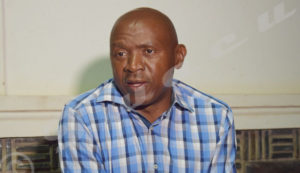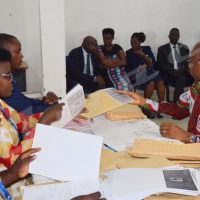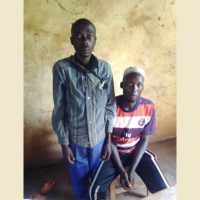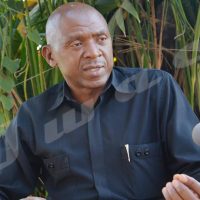Burundi organized a constitutional referendum on 17 May to change the current constitution adopted in 2005. Independent National Electoral Commission announced on 21 May that 73. 26% voted in favor of the new constitution while 19.36 voted against. Agathon Rwasa, Chairman of opposition coalition Amizero y’Abarundi says he is disappointed with the results, which he describes as fanciful. “The referendum was held in a climate of fear and intimidation,” says Rwasa.

Agathon Rwasa, chairman of Amizero y’Abarundi “not all Burundian people profit from the new constitution except a group of some individuals close to president Nkurunziza”
He indicates not all Burundian people profit from the new constitution except a group of some individuals close to president Nkurunziza.
Rwasa worries that the new constitution discriminates against some categories of people. “It stipulates that Burundians who have dual nationality will not be able to occupy important positions such as the president, prime minister … president of the Senate or Assembly …,” he says adding that he is concerned that this constitution will promote the ethnic discrimination in state institutions.
For him the Arusha Peace and Reconciliation Agreement had put in place provisions on the ethnic quota that is 60% of Hutu and 40% of Tutsi to prevent ethnic conflict and promote power-sharing principles. However, the new constitution no longer respects these ethnic quotas and allows the current president to run over two presidential terms, says Rwasa. “It stipulates that each ethnic group will have some representations in public institutions without specifying the percentage.
Rwasa also indicates that the new constitution diminishes the national assembly power.
“The quorum of deliberation will fall from 80% for organic laws and 75% for ordinary laws to 51%,” says Rwasa arguing that Burundian Parliament risks becoming a government tool.
He also says the party that will win the elections will have the power to set up the government without members of other political parties.
In a statement issued on 21 May, the US Department of State expressed its concern that the passage of the revised constitution will be interpreted as resetting presidential term limit. It calls the ruling party’s commitment to the respect of presidential term limit and power-sharing principles of the Arusha Peace and Reconciliation Agreement.



















 IWACU Open Data
IWACU Open Data

